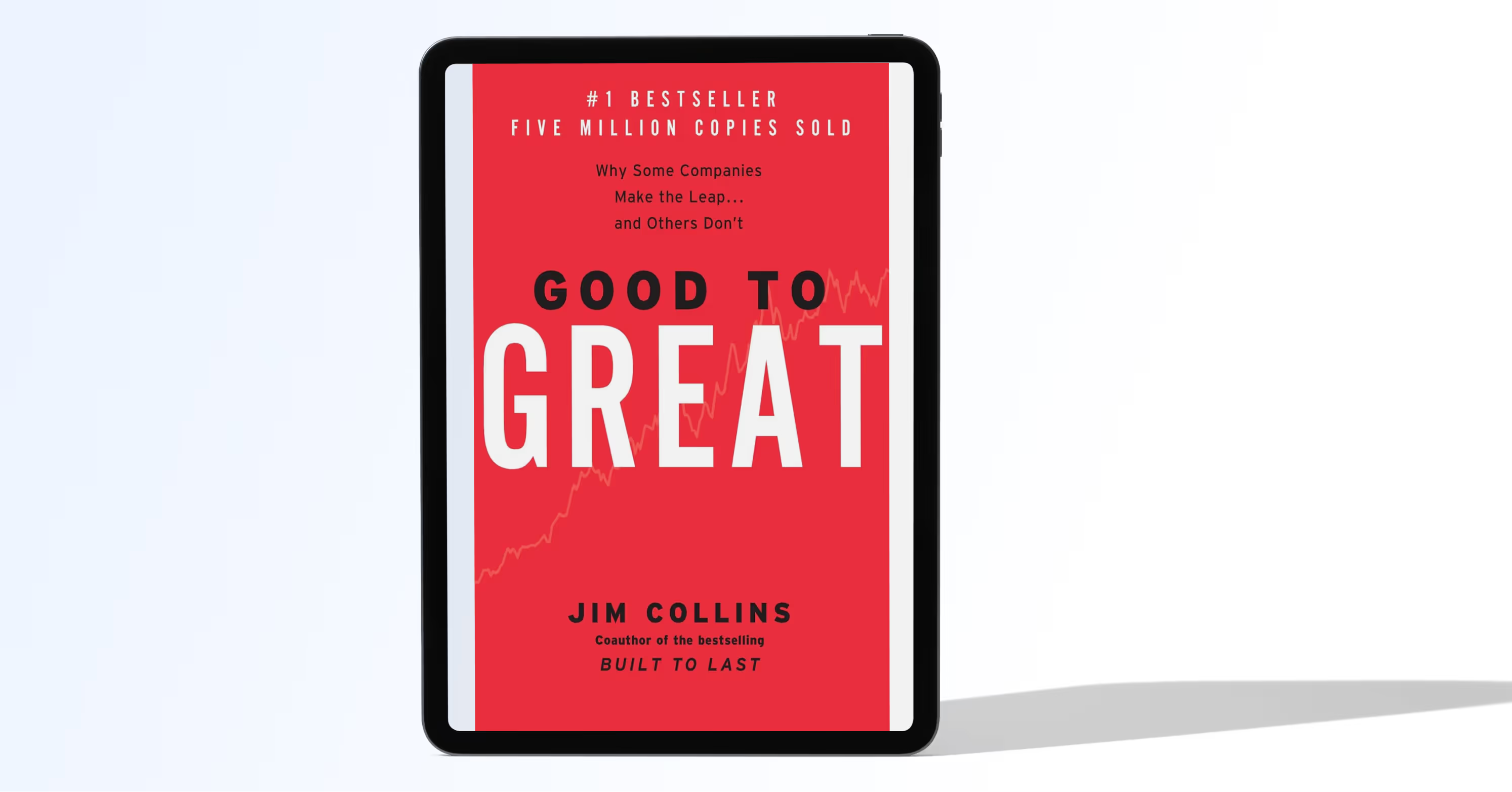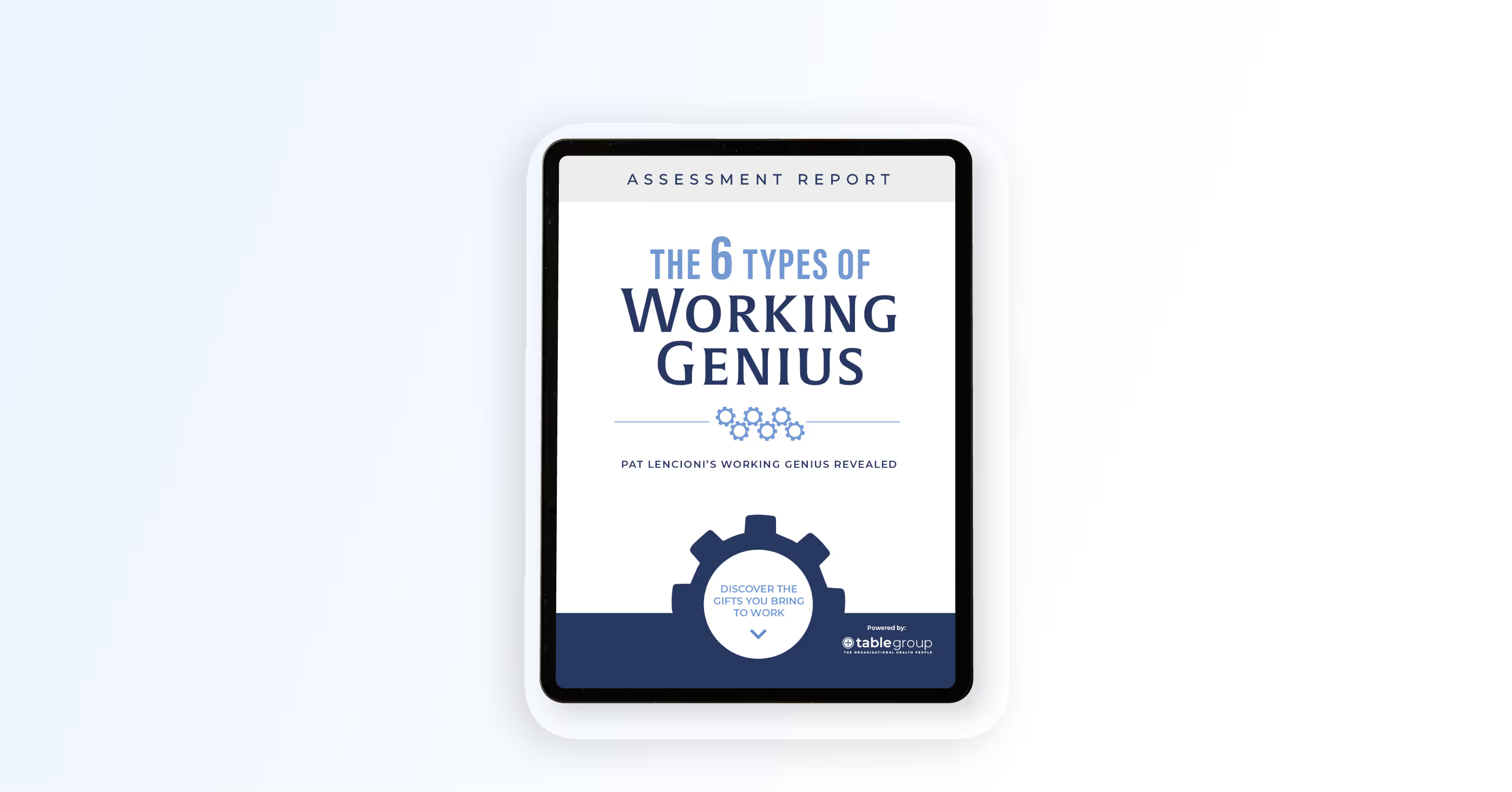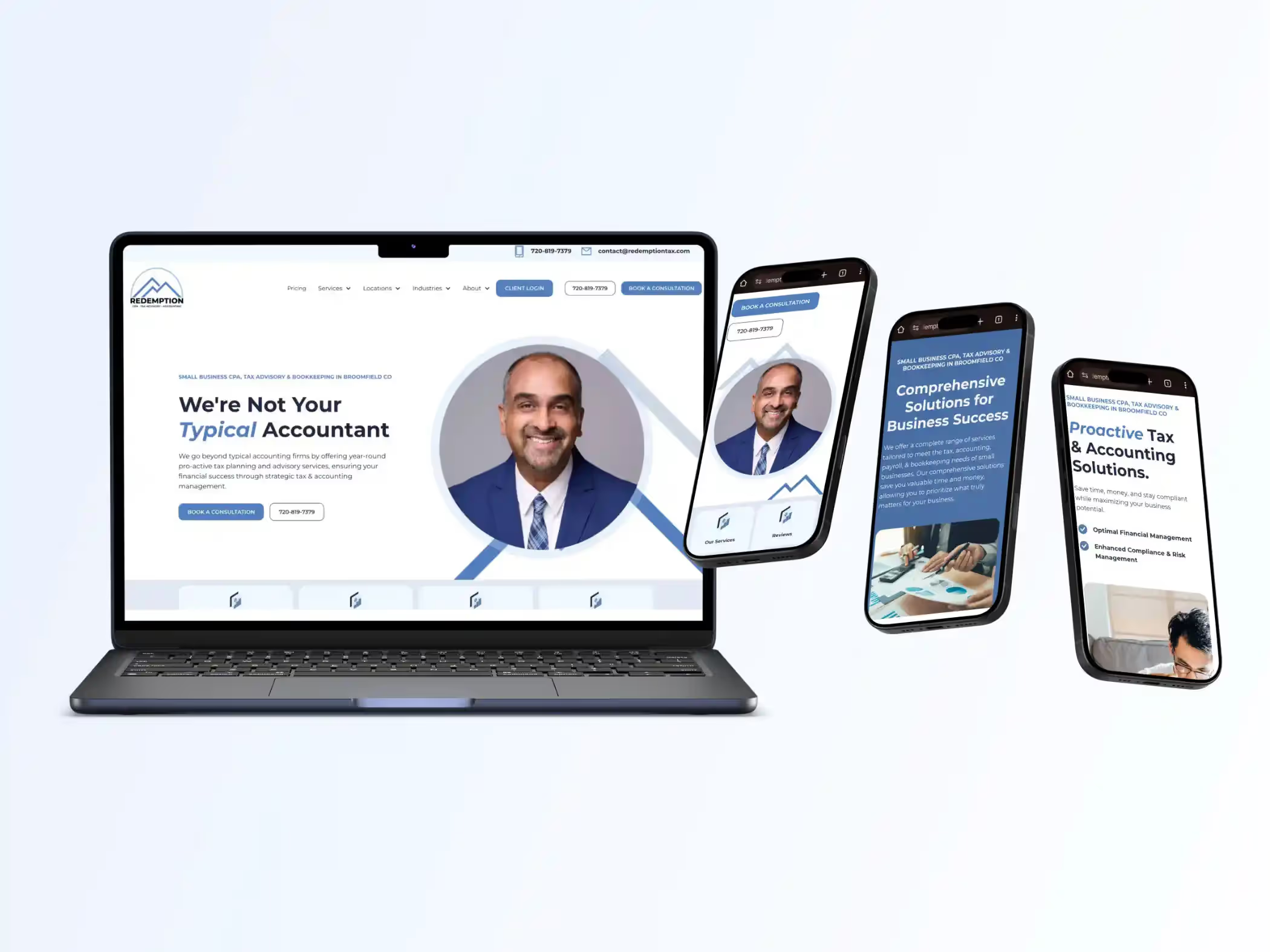The Outsourced Accountant Business Model
The High Retainer, High Value, Accounting Firm Business Model. Discover the underpinnings fo the most successful business model for accountants, bookkeepers, tax professionals and CPA Firms.

What is the Outsourced Accounting Model?
You’ll hear me (Rob Satrom of Feedbackwrench), and many others claim that an “outsourced accounting” business model is better than the typical accounting model.
Is that just some nonsense from the world of accounting gurus, or is it a real and tangible thing that can lead to better outcomes for accountants and their clients?
I’m going to try to clearly explain what the outsourced accounting model is and hopefully you’ll choose to be part of this movement that creates a better future for small businesses and accountants.
What is an outsourced accountant? What’s the difference between a traditional accountant business model and the outsourced accounting model? What’s the best business model for accountants, bookkeepers and Certified Public Accountants?
Here at Feedbackwrench, we build websites for accounting firms, provide masterful copywriting services, help drive leads with PPC advertising services, and dominate with search engine optimization services.
We've developed a couple of resources you should check out like our 6 ways to get bookkeeping clients, our guide to SEO for bookkeeping companies, and many other tips for bookkeepers and accountants.
Accounting and tax firms struggle to create successful businesses with high paying clients.
Why do CPA firms and accountants struggle to create successful businesses? Well, it’s a combination of a bad business model, a terrible value proposition, and poor salesmanship.
If you like what you read here, then check out our online course that coaches how to build an outsourced accounting firm, and check out our websites for accounting firms.
Why Typical Accounting Firms Languish:
- Bad Business Model
- Terrible Value Propositions
- Poor Salesmanship
- Lazy prospecting & not enough front end activity
- Low value services
The Bad Accountant Business Model
First, here’s what the typical accounting firm model leads to:
- Feast or famine revenues
- Terrible life work balance during tax season
- Commoditized, meaningless work
- Diminishing returns as you scale
Most accountants know their business model is broken, but they usually see it from the perspective of their net profits and financial stability. Accountants often put up a front, but if you really asked them or peaked into their bank accounts, the story is the same.
They work too hard, their work/life balance is terrible during tax season, and they’re not really earning money in proportion to the risk and calories the business requires.
The Typical Accountant Business Model
The typical business model sells what people ask for. The typical business model is where highly trained accountants provide the tax and accounting services customers ask for at an hourly or flat rate. The primary trademark is that they provide tax and accounting services that people ask for. The problem is that people and businesses only ask for what’s immediate, not what would lead them to a preferable future.
Non accountants don’t really know what they should be asking for. They come in for a tax return and bookkeeping service, but what they really need is help doing everything possible to mitigate taxes, to never waste staff time performing accounting functions to a mediocre level at best, and they need to make sure they’re doing things legally to mitigate risk.
I’ll dive deep into those 3 value propositions in the next section, but let’s keep hitting on this business model thing.
Business owners and individuals are ignorant about accounting and taxes, so they don’t know what they don’t know.
How can a business owner order something they don’t really know exists?
The Traditional Firm is built around offering the services that customers ask for, and what they ask for is a tax return, bookkeeping services, backup bookkeeping, payroll services and maybe audit help when they’re in trouble.
The Outsourced Accounting Model doesn’t provide the services people ask for. Rather, outsourced accountants engage with business owners, cast vision for what’s possible, and then plug them into their focused operations that deliver the outcomes they really want (the better value proposition).
The Outsourced Accounting Model provides an all-in-one service for small businesses that brings them to a preferred future.
The business model for the outsourced accountant insists that all clients get the same service, just at various levels depending on the scope of work required to deliver the outcomes.
What’s all included in the outsourced accounting model?
- All clients get their books set up perfectly & cleaned up.
- You’ll take an in-depth snapshot of their taxes, financial picture, and accounting system.
- You’ll create a comprehensive tax plan focusing on both the current year taxes and the subsequent years.
- You’ll then do all the work necessary, within reason, to get them optimized for the plan (setup S-Corps, help direct for retirement plans, etc).
- You’ll then keep their books up to date with high-levels of bookkeeping.
- You’ll set them up on the best payroll, and either run it for them or teach them, while providing customer service.
- You’ll then provide monthly or quarterly reports with real feedback and coaching.
- You’ll eliminate tax liability surprises by helping them pay in according to the tax plan, so they end the year without owing anything or getting a refund, and you’ll do it through the payroll system.
- You’ll meet before year end, and help them make tax mitigation decisions proactively.
- You’ll close out the books and perform high-levels of year end reporting.
- You’ll make the year end tax season a breeze, because you’ve done everything through the year.
- You’ll do all the tax returns for the owners and their family.
- You’ll help provide wealth building strategies for the owner, bordering on being their financial planner.
- You’ll help them mitigate risk, recommending trusts, life insurance, disability insurance, and other simple common sense risk mitigation techniques.
This is the outsourced accounting model. You either perform all of these services, or none of them. The overall value proposition that your customers will love are contingent upon you providing each of these services in successive order. If you take any of these out, you’ll find that the overall value proposition isn’t as attractive.
Value Sensitivities
Price is one of the least important value sensitivities. The key is to uncover what really helps a business, and what’s valuable to them.
Generally speaking, the most important things that an accountant can deliver that will make the biggest impact in the life of a business owner is:
Most Prevalent Value Sensitivities for Accounting Clients (businesses)
- Increased Productivity (get more work done with what you have)
- Efficiency (decrease what it takes or costs to get work done)
- Tax Efficiency & Wealth Optimization (increase what they keep from their efforts)
Accountants, by the nature of their role and gifting, bias towards thinking cost rather than value.
Summary of the Business Model
The typical accounting business model delivers services rather than valuable outcomes.
The outsourced accounting model is focused on the most valuable outcomes, and provides what it takes to get there - without nitpicking on the hourly rate to accomplish each outcome.
Outsourced accountants charge monthly retainers to obtain the outcome, not hourly rates to perform the task or service.
The outcome for the Accountant is that rather than cram in hundreds of tax returns at the end of the year, they can provide year-round, valuable services to businesses while focusing on adding value, in exchange for financial stability.
It’s not uncommon for a company to gleefully pay $500-$800/month for these services. That’s $6,000-$9,600 a year for each outsourced accounting client.
If the business is creating $500/month averages.
- 25 clients to hit 150,000 in revenue
- 50 clients to hit 300,000 in revenue
If it’s the $800/month averages:
- 25 clients creates $240,000 in revenue
- 50 clients creates $480,000 in revenue
Trust me when I say that this business model is much more sustainable, flattens out the feast or famine nature, and makes happier accountants.
A Better Value Proposition
We already hit on it, but the second reason why the typical accounting model is terrible is because of a terrible value proposition.
I’ll move faster here, but think through it. What are the value propositions of a tax return or bookkeeping service?
The business owner doesn’t go to jail and can do their tax return.
If you focus on doing the tax and accounting services that customers ask for, you’re simply keeping them compliant in some manner.
Sure, I could create propaganda that manufactures some more value behind tax returns and bookkeeping, but it’s totally missing the mark.
The Outsourced Accountant Value Propositions
I found that there are 3 core value propositions, but they’re tied to the value sensitivities.
We’re going to make them more productive, more efficient, and help them keep more of their own money.
Those 3 are great value sensitivities, meaning that it’s what will deliver the most value to the business owner, but it’s not the 3 value propositions. The three value propositions include:
- Mitigate Your Taxes & Build Tax Efficient Wealth
- Save Time & Be a Staff Alternative
- Keep them compliant and mitigate risk
Value Prop 1: Mitigate Your Taxes & Build Tax Efficient Wealth
Everyone who sees the gross wants to keep more of it.
I’ve never met a small business owner who wants to round up, or thinks that the brilliance in Washington DC or the State Capital deserves more of their money.
Seriously, red blooded American business owners despise the thought of overpaying in taxes.
I could go off on a long rant now about how socialism has creeped it’s way into America through soviet academics, and how it’s attempting to destroy our society, but I think Thomas Sowell does a better job.
There are 2 parts of this value proposition, saving taxes and building tax efficient wealth.
We want to help our business owners to keep more money, and build up more wealth.
Tax Reduction Planning
There’s a huge difference between businesses with a proactive, aggressive, year-round tax planning accountant and those who just file their taxes at the end of the year.
We want to help business owners make decisions throughout the year that will help them maximize every tax efficient strategy available, so they can pay as little in taxes as legally possible.
“Pay their legal requirements and not a penny more” I always say.
Alongside that, we want to help them build wealth. This means helping them be financially wise, avoiding the pitfalls of financial illiteracy and failure to plan. Such as, not participating in compounding interest and the wealth building power of the stock market, or never paying off debt or living without a financial plan.
We need to help their future self, and their loved ones, by putting into action the best practices to build financial momentum and wealth. We either control our money, or our money controls us. That means you ought to help your client pay off debt, build up nest eggs, save for retirement, use the best retirement plans, shift income to children, get involved in real estate investments, maximize depreciation, and do everything possible to implement sound financial planning.
I’ll even hit on passive index funds, investment fees, and the Dave Ramsey 7 baby steps. You’ll want to focus on the tax planning because people are hesitant to open up about their overall financial picture, but you’ll get there over time.
Hallmarks of the Tax Reduction & Wealth Value Proposition
- Pro-active planning- you come with ideas & strategies
- Year-Round planning - you help throughout the year so they have options
- Aggressive - it’s about pushing things while staying compliant
- Long-Term - you’ll need to help them achieve long term asset protections
- Tax Diversification - Help them avoid political risk through asset and tax diversification
- Wealth Coaching - Helping them invest & pay off debt
Value Prop 2: Save Time & Be a Staff Alternative
This value proposition is where productivity and efficiency comes into play.
The language is much less direct, but the idea is that you’ll make sure that the business owner, and their staff, don’t have to waste their time doing accounting functions. When they do the accounting, it often creates more problems than it solves.
Besides that, business owners will mature into the understanding that there are certain things that they should focus on and certain things they should NOT be doing. There are two hallmarks to make them more productive & efficient:
- Business owner/s won’t do any accounting or bookkeeping
- You’ll be a staff alternative
A business owner’s time is massively valuable, and staff are expensive. Once you shift any prospect into considering what it would cost to hire a part time bookkeeper and financial admin, you’re going to get them nodding their head.
A part time accountant usually works 12 hours a week at $20/hour. That’s $240 a week without taxes, benefits, or the hassle of training. That’s $960 a month.
These are conservative numbers, and trust me when I tell you this, you can EASILY help business owners avoid hiring someone who, at best, has mid-level accounting knowledge or tax skills.
They’ll still have to pay for year end taxes, they’ll have to coordinate the messing around between the CPA and the business owner, and there will be inefficiencies. All in one service leads to smarter advice and better services.
Another thing to focus on is that when you’re able to handle all the bookkeeping, getting things setup correctly, paying in the taxes, and handling the year end, they all come together so you can provide super informed advice. You’ll be their financial quarterback, which is what they really want and need.
When there are separate people doing taxes and books, they tend to question each other OR they just avoid asking any questions and march forward to avoid wasting their time. On the other hand, an outsourced accountant has complete understanding of the entire bookkeeping, tax, tax payment, and long-term strategic vision.
You’ll be so much better than them hiring someone, let alone them wasting their own time on it.
Value Prop 3: Keep them compliant and mitigate risk
You’re going to do things correctly, and make sure they’re keeping an eye on threats.
Because you have complete control over the books, tax payments, payroll and year end taxes, you can make sure things are done correctly, and make sure they avoid audits and problems. Besides that, you should help them be cognizant of risks that they ought to mitigate.
Self employed people and business owners often struggle to put into place the risk mitigation tools that prevent disaster. Unless you’ve seen someone go through some of these things, people don’t care about them.
Examples of risk mitigation:
- Place businesses and assets into trusts rather than a will - creates control and saves the family.
- Protect from death with high death benefit life insurance.
- Protect their ability to earn with long term disability insurance (provides part of their salary if they have a qualifying disability and cannot perform the core duties of their job).
- Protect from lawsuits and legal liabilities with liability insurance.
- Protect from corruption & theft with financial controls.
- Protect from the IRS by properly documenting everything, keeping great records, and mitigating risks.
This is catastrophe planning and when you hit on it during your sales presentation, you’ll see that it’s something they understand, particularly the IRS stuff.
Most Americans only worry about the big catastrophic stuff when they see a friend, peer, or family member go through it; but you can help them avoid such catastrophes.
Value Proposition Summary
Remember that you can deliver the highest degree of value by helping business owners be more productive, more efficient, and helping them keep more of their money.
The way you can accomplish this is by delivering on the 3 value propositions.
- Mitigating taxes and building tax efficient wealth
- Saving them time and serving as their staff alternative by doing everything for them
- Keeping them compliant and help them avoid catastrophe or risks
Business owners want this, and if you focus on delivering this, you’ll have a better business.
Poor Salesmanship
Accountants get into the profession of accounting because they like to be behind the scenes performing the detailed and complicated work, rather than being on the front lines of sales & marketing. I've detailed out the sales process in my course, but I’ll hit on some of the points here.
The most important thing you can do is to pump the brakes on all sales and have it go through your sales cycle.
You need to connect with business owners where you can cast a vision for the preferable future, do an in-depth analysis on their taxes and accounting, unveil what you’ve found and create a clear and doable path to engage with you.
You’ll want to deploy a digital marketing campaign with your website, google search, video sales letters, and lead magnets to get people in front of you. You’ll also want to make sure you get really good at asking great questions and doing short presentations.
Here’s the core of great salesmanship to feed the outsourced accounting mode:
- Hunt for 1099 income earners & business owners
- Press into the S-Corp & their current relationship with the accountant
- Use open ended questions to deeply understand their business & journey
- Uncover where they’re at and what they’re struggling with
- Cast vision and ask them if they like the idea of something like that
- Move towards doing a tax analysis, working hard to get the tax return
- Focus on benefits and what you’re value proposition is as a whole, not the individual services
- Recreate this digitally with Feedbackwrench
My course that teaches you how to start a super profitable tax and accounting firm is totally worth it.
While I always talk about the 2 stages to a business startup, the key to being able to do this kind of work is to…????
The Story Behind my Outsourced Accounting Firm
Back in 2012 I had been recruited into the financial services industry and I was trying to help people with their investments, life insurance and retirement planning. I spent about a year and a half in that industry and I ended up getting out because of the bad incentives it created for products and compensation. If we wanted to pay our mortgage, we had to sell variable annuities that weren’t really good for customers and I hated that.
During my time in the financial planning world, I got extensive coaching on how to build a successful agency, and I had the opportunity to get around some financial advisors that had been doing it for decades and having a great deal of success.
There were 2 groups of advisors that were super successful, so I spent some time paying attention to what they were doing. Both of them would provide moderate levels of guidance around estate planning and tax planning, which was perceived as extremely helpful to the client and lead to new engagements.
I decided that I really liked the idea of this tax planning, so I dove in to learn everything I could about what it took to mitigate taxes in a meaningful way. This lead me to the conclusion that self employed and small business owners have the most to gain in terms of tax planning. I set out to show business owners how to mitigate taxes with an S-Corp, retirement plans and real estate, and I was hoping that they would like to do financial planning with me. When I got in front of a dozen or so of these folks, they all heard about the tax planning and asked if I knew a tax person that could do “that” for them. So, I ended up connecting with scores of CPA’s to find out if there was a partnership I could strike with them, but my run-ins with CPA’s all felt the same.
CPA’s were really intent on acting like they already had it all figured out, they didn’t like hearing my ideas, and they never paid any referrals back my way.
In a way, they were kind of cowards.
They loved the clients I sent them because they were all buttered up for an advisory service, loved the idea of the tax planning and an all in one service, and the CPA didn’t have to do anything in terms of vision casting or moving the prospect towards their solutions. It was great for them and terrible for me.
I decided that we could build a sweet little firm just offering to do all the accounting, bookkeeping, and compliance work but that we would really serve as their tax planners and financial guides. My old best friend, myself, and another guy decided to come together and form our tax firm.
Over the next 2 years, I prospected and marketed to get over 150 small businesses paying retainers between $250 a month and $2500 a month, and we hit a million in revenue. I learned a great deal, but my partners pulled some shenanigans which caused me to lose trust and confidence in them entirely, so I totally cut ties with them.
This was incredibly difficult for me. While they were the 2 accountants, this business had been my dream. I had gotten all the clients, I had formulated the business model, I had done all the risky stuff and they were the ones getting a million dollar firm.
But I’m a follower of Jesus, and during my prayers, devotions and time with wise people, I felt God telling me to just move forward, forgive, and don’t take them to court to get what was legally mine. Instead, I set out and I built Feedbackwrench. From there on out and as I worked with scores of different business types, I suddenly had some of my YouTube videos really increase in viewership, and I started to share what I had learned while building my firm.
Before I knew it, we were helping accountants build firms similar to what I had done previously and we’ve grown far beyond what our dreams could have imagined!
Free Guides & Blog Categories
We invest heavily in helpful content that assists small businesses owners.
Book a Consultation & Grow Your Business
Book with Rob & the team to identify ways to make the web a fantastic sales & prospecting tool to sell your core services.












.avif)
.avif)









